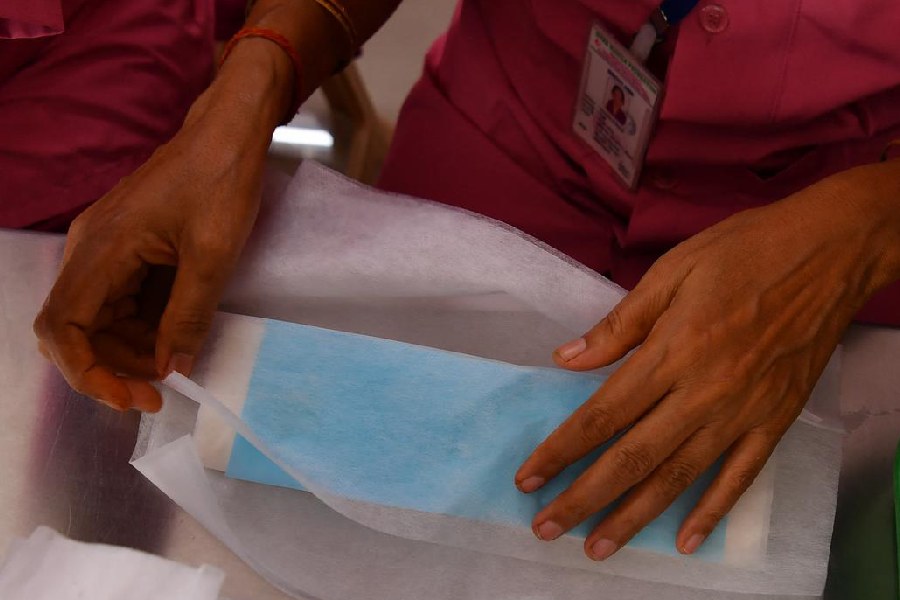Odisha deputy chief minister Pravati Parida on Wednesday launched an initiative to promote the use of reusable menstrual products among school and college-going girls at IIT Bhubaneswar.
The project CARE (Campus Action for Reusable Essentials) aims to distribute eco-friendly reusable menstrual pads to women from underserved communities.
Parida has unveiled two sanitary napkin vending machines, donated by Canara Bank, symbolising a step forward in menstrual accessibility on campuses and public institutions.
Parida said: “Menstruation, a natural biological process, has long been shrouded in taboo, forcing generations of women to suffer in silence. It is time we break this silence, and initiatives like this conclave are key to driving change.”
She lauded IIT Bhubaneswar and its research entrepreneurship division, along with other partners, for organising the event.
Highlighting the need for cultural transformation, the deputy chief minister said: “The day sanitary napkins become part of a family’s monthly grocery list or a brother’s gift to his sister, we will witness real progress in women’s empowerment.”
She added: “Men must also be educated on menstrual health to help break the stigma. Access to safe menstrual solutions in workplaces and educational institutions is essential.”
The event was organised under the “Project Period: Sanitation, Health and Hygiene, and Environment (SHE)” initiative by IIT Bhubaneswar Research and Entrepreneurship Park, in collaboration with the United Nations Children’s Fund (Unicef), the Saukhyam Foundation, the Action Lab 2050 Foundation, and the Odisha Menstrual Health and Hygiene Alliance.
Director, IIT, Prof. Shreepad Karmalkar said: “Through our Research and Entrepreneurship Park and the 100 Cube Startup initiative, we are advancing innovative, scalable solutions — from biodegradable sanitary products to AI-powered health tools — that address real societal needs. Menstrual health is not just a women’s issue, it is a societal imperative.”
He also highlighted that at IIT Bhubaneswar, the provision work from home for two days during periods has been made for the PhD scholars, working under a supervisor.
Dr. Seema Bahinipati, independent director, IIT Bhubaneswar’s Research and Entrepreneurship Park, spoke on the ongoing efforts to foster inclusive health and research innovation.
Speaking about Project CARE, Harsha Bharda, deputy-general manager at ESG (Environmental, Social and Governance), Nexus Select Trust, said: “Through Project CARE, we want every girl to feel seen, safe and supported. This partnership is a step towards giving voice to many who remain unheard.”
Project CARE is a part of Nexus Select Trust’s larger campaign “Happyness for HER”
Willian Hanlon Jr, chief of field office, Unicef Odisha, stressed the importance of partnerships in breaking stigma and enabling access to menstrual hygiene products and education.










